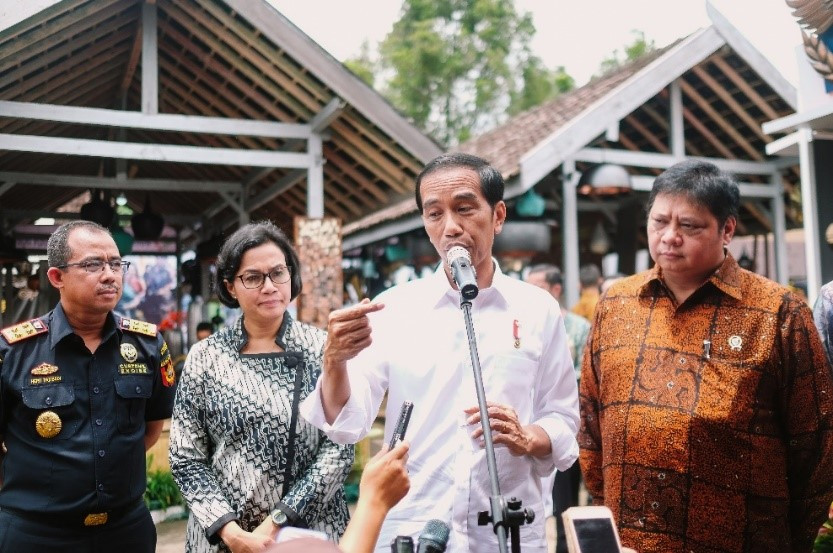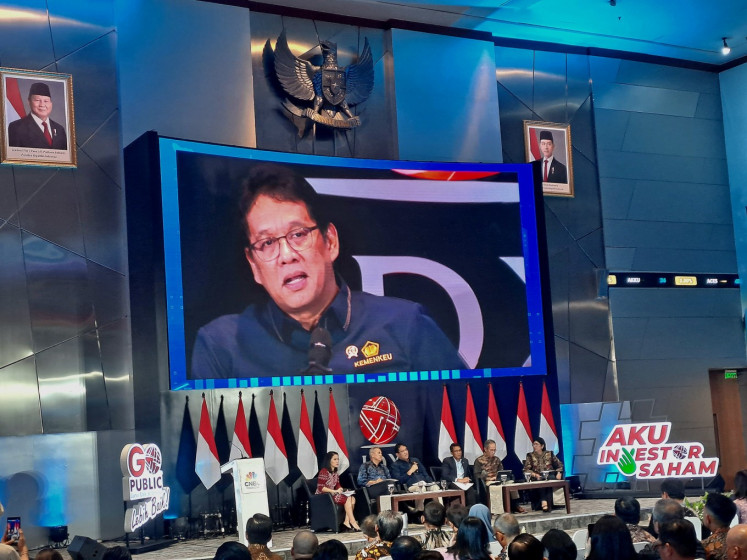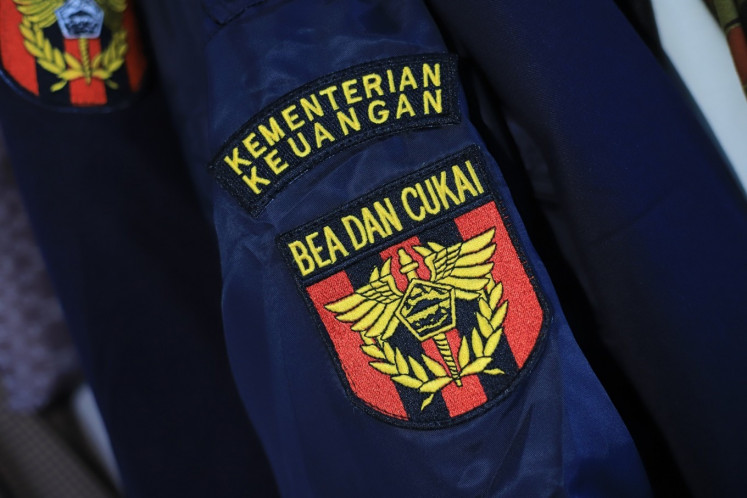Popular Reads
Top Results
Can't find what you're looking for?
View all search resultsPopular Reads
Top Results
Can't find what you're looking for?
View all search resultsA decade of Indonesian MSME journey: Empowering local products to penetrate global markets
Change text size
Gift Premium Articles
to Anyone
M
icro, small and medium enterprises (MSMEs) hold a vital role in the national economy, becoming a backbone of economic stability, and have proven to be resilient in the face of crises such as the COVID-19 pandemic. MSMEs dominate economic growth by contributing around 60.5 percent of gross domestic product and absorbing 96.9 percent of the total workforce. Therefore, the government continues to encourage the MSME sector through various policies and programs that are expected to advance the sector so that it can participate in the global value chain.
MSMEs play a vital role in creating economic stability. When the COVID-19 pandemic changed the global economy, MSMEs operating in various local sectors persisted and even grew. The local products during that time, such as batik masks and personal protective equipment (PPE), not only met the needs of the domestic market but also managed to penetrate the international market. This success shows the great potential of Indonesian MSMEs to participate in the global value chain.
Over the past decade, the Indonesian government has shown a strong commitment to support the growth of MSMEs, especially in expanding market access abroad. As part of the 2015 Economic Policy Package, the government issued Finance Ministry Regulation (PMK) No. 177/2016 to support the improvement and expansion of export markets for small and medium enterprises (SMEs). This regulation provides for exemption from import duties and elimination of VAT or PPnBM on the import of goods, materials and machinery for export purposes, known as Export Destination Import Facilities (KITE) for Small and Medium Industries (IKM). Furthermore, on Jan. 30, 2017, the President Joko “Jokowi” Widodo officially launched the policy at the Tumang Copper Craft Center, Boyolali Regency.
For SMEs, the facility is useful for reducing production costs, increasing cash flow that can develop production capacity and investment and increasing competitiveness. Meanwhile, for the national economy, KITE IKM can encourage the growth of SME products with national branding that can fill the international market, strengthen Indonesia's competitiveness in implementing the ASEAN Economic Community and strengthen the foundation of the national economy by supporting the development of export-oriented SMEs.
As a result, according to the 2023 Economic Impact Report, there are 120 enterprises that contribute to the export foreign exchange as much as US$67.16 million. Even though the export contribution was valued at 0.03 percent of total national manufacturing exports, the ratio of exports to imports has reached 4.01. The facilities provided to these companies reached Rp 46.82 billion (US$3.02million), with the absorption of 18,043 workers. This economic activity generates added value of Rp 887.41 billion and new investment of Rp 180.22 billion.
The utilization of KITE IKM facilities has also shown a positive trend in the last 10 years. This is indicated by the addition of companies receiving facilities followed by an increase in export value each year. The number of companies receiving KITE facilities reached 125 in the second quarter of 2024 with a total export contribution of US$42.36 million.
The government also facilitates the expansion of the MSME product market abroad through collaboration between financial, diplomatic and banking functions, as well as developing MSME potential through structured and standardized MSME empowerment with the Export Clinic program. In recent years, the government's collaborative actions have been realized through the provision of training and opportunities to learn and explore foreign markets. These collaborative efforts bring information sources from the destination country closer to MSME actors through various activities, such as business matching, international entrepreneurship development and training, facilitating the organization of product exhibitions, and forms of international promotion of MSME products. Meanwhile, since 2018, the Export Clinic program has been providing technical assistance and mentoring to MSMEs to ensure they are ready and able to penetrate the export market. The Export Clinic acts as a center for consultation and training on exports, providing practical guidance on licensing, market connections and various fiscal facilities available to MSMEs.
Various success stories appeared through this program. For example, from the food industry, in the year 2023, Kelompok Tani Wanoja successfully exported seven tonnes of Arabic coffee to Saudi Arabia and PT Saricotama exported 54 tonnes of frozen coconut juice to China. From the craft industry, CV Bunga Melati successfully exported 9,897 items of coconut fiber decorative pots (kokedama) to Japan in 2023. From the beauty industry, MSME Henny Beauty with its bedda lotong product, a traditional Bugis body scrub, has penetrated the Asian and Australian markets.
The Indonesian government, through various initiatives and synergy between ministries and institutions, is committed to supporting MSMEs and to increasing their competitiveness in the global market. Supportive programs, such as the Export Clinic, fiscal incentive facilities such as KITE IKM and international collaborations have paved the way for MSMEs to become sustainable export players. The success of MSMEs in penetrating the export market will not only increase national income, but also build a positive image of Indonesia internationally.
Source: Finance Ministry










